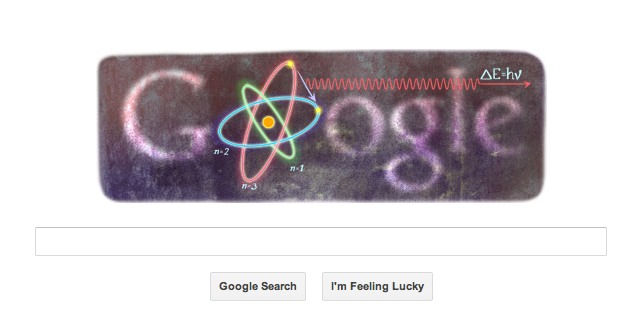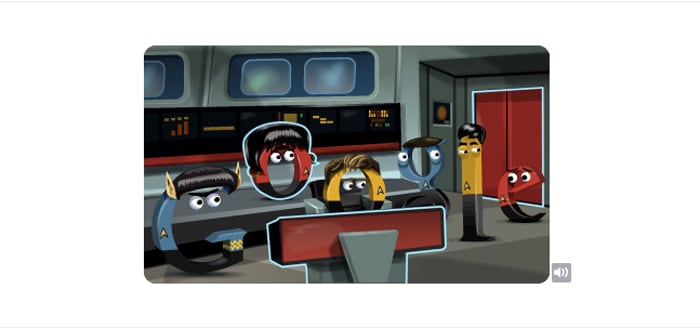- Home
- Others
- Others News
- Niels Bohr's mission for an 'open world'
Niels Bohr's mission for an 'open world'
By NDTV Correspondent | Updated: 7 October 2012 20:30 IST

Advertisement
Niels Bohr, the subject of Sunday's Google doodle, was a reputed physicist, and like other physicists of the time, not isolated from the political environment around him.
Finn Aaserud, Director of the Niels Bohr Archive in Copenhagen, says, "Unlike Einstein, Bohr started to involve himself seriously in international politics relatively late in life. Yet there are scattered statements and activities earlier in Bohr's life indicating a genuine interest and commitment." Aaserud quotes a letter Bohr wrote to his mentor at Manchester University, Ernest Rutherford:
Aaserud also talks about Niels Bohr's views on the atomic bomb and a post-nuclear world.
In 1950, Niels Bohr wrote an open letter to the United Nations, that discussed his views on the nuclear weapons, and also his efforts during and after the war to convince world readers to be more open about the information. The letter coincided with the Stockholm appeal, calling for abolishment of nuclear weapons. Aaserud concludes, "When he was encouraged to join the appeal, Bohr strongly objected to it, stating adamantly that any approach must start from a full exchange of information among nations, an 'open world' as he called it."
For full text of Finn Aaserud's speech at the 2nd International Conference of the European Society for the History of Science, click here. (PDF)

Best Google doodles of 2012
For more Google doodles, visit this page.
Finn Aaserud, Director of the Niels Bohr Archive in Copenhagen, says, "Unlike Einstein, Bohr started to involve himself seriously in international politics relatively late in life. Yet there are scattered statements and activities earlier in Bohr's life indicating a genuine interest and commitment." Aaserud quotes a letter Bohr wrote to his mentor at Manchester University, Ernest Rutherford:
All here [in Copenhagen] are convinced that there can never be a war in Europe of such dimensions. [...] all liberal-minded people in the world [not least in Germany] seem to have understood the unsoundness of the principles on which international politics has hitherto been carried on."During the next fifteen years Bohr developed his new institute into a Mecca for international cooperation in science, seeking to maintain the exchange of physicists between nations," says Aaserud.
Aaserud also talks about Niels Bohr's views on the atomic bomb and a post-nuclear world.
In London Bohr was briefed about the status of the Allied atomic bomb project, and he was immediately convinced that a bomb might be ready within a matter of months. While agreeing to join the project as a member of the British contingent, he was also worried about the postwar implications of the bomb, discussing the matter in particular with Chancellor of the Exchequer and political leader of the British side of the bomb project, Sir John Anderson.Further, Aaserud highlights Bohr's foresight and statesmanship.
Bohr advocated telling the Soviet Union about the existence of the bomb before it was used in order to avoid destroying all confidence of the war partner at the end of hostilities and to enable postwar negotiations on international control of atomic weapons. He wanted to bring his point to the very leaders of the nations developing the atomic bomb - President F.D. Roosevelt and Prime Minister Winston Churchill.Despite his best efforts, Bohr could not convince the world leaders to follow his advocated path. Aaserud recalls d-day. "When the bomb was dropped on Hiroshima on 6 August 1945, Bohr was back in England. Only five days later an article under his name appeared in The Times. It contained the essence of his views without revealing the substantial diplomatic efforts he had carried on in order to accomplish them."
In 1950, Niels Bohr wrote an open letter to the United Nations, that discussed his views on the nuclear weapons, and also his efforts during and after the war to convince world readers to be more open about the information. The letter coincided with the Stockholm appeal, calling for abolishment of nuclear weapons. Aaserud concludes, "When he was encouraged to join the appeal, Bohr strongly objected to it, stating adamantly that any approach must start from a full exchange of information among nations, an 'open world' as he called it."
For full text of Finn Aaserud's speech at the 2nd International Conference of the European Society for the History of Science, click here. (PDF)
Best Google doodles of 2012
For more Google doodles, visit this page.
Comments
For the latest tech news and reviews, follow Gadgets 360 on X, Facebook, WhatsApp, Threads and Google News. For the latest videos on gadgets and tech, subscribe to our YouTube channel. If you want to know everything about top influencers, follow our in-house Who'sThat360 on Instagram and YouTube.
Further reading:
Google doodle, Niels Bohr
Related Stories
Popular on Gadgets
- Galaxy S24 Series
- MWC 2024
- Apple Vision Pro
- Oneplus 12
- iPhone 14
- Apple iPhone 15
- OnePlus Nord CE 3 Lite 5G
- iPhone 13
- Xiaomi 14 Pro
- Oppo Find N3
- Tecno Spark Go (2023)
- Realme V30
- Best Phones Under 25000
- Samsung Galaxy S24 Series
- Cryptocurrency
- iQoo 12
- Samsung Galaxy S24 Ultra
- Giottus
- Samsung Galaxy Z Flip 5
- Apple 'Scary Fast'
- Housefull 5
- GoPro Hero 12 Black Review
- Invincible Season 2
- JioGlass
- HD Ready TV
- Laptop Under 50000
- Smartwatch Under 10000
- Latest Mobile Phones
- Compare Phones
Latest Gadgets
- Huawei Pura 70 Pro+
- Huawei Pura 70 Ultra
- Tecno Camon 30 Premier 5G
- Motorola Edge 50 Fusion
- Oppo A1i
- Oppo A1s
- Motorola Edge 50 Ultra
- Leica Leitz Phone 3
- Asus ZenBook Duo 2024 (UX8406)
- Dell Inspiron 14 Plus
- Realme Pad 2 Wi-Fi
- Redmi Pad Pro
- Cult Shock X
- Fire-Boltt Oracle
- Samsung Samsung Neo QLED 8K Smart TV QN800D
- Samsung Neo QLED 4K Smart TV (QN90D)
- Sony PlayStation 5 Slim Digital Edition
- Sony PlayStation 5 Slim
- IFB 2 Ton 3 Star Inverter Split AC (CI2432C323G1)
- Daikin 1 Ton 3 Star Inverter Split AC (FTKL35UV16W+RKL35UV16W)
© Copyright Red Pixels Ventures Limited 2024. All rights reserved.

















